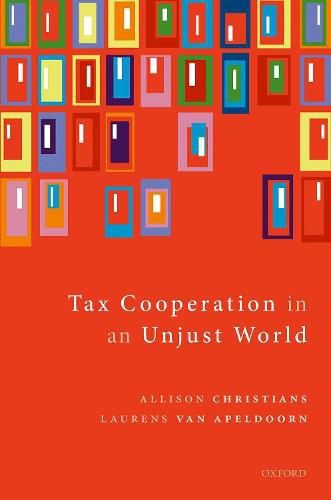Readings Newsletter
Become a Readings Member to make your shopping experience even easier.
Sign in or sign up for free!
You’re not far away from qualifying for FREE standard shipping within Australia
You’ve qualified for FREE standard shipping within Australia
The cart is loading…






The way that nation states design their tax systems impacts the sharing of resources and wealth within and across societies. To date, wealthy countries have made tax policy design and coordination choices which allow them to claim more than they are justifiably entitled to from the global economy. In Tax Cooperation in an Unjust World, Allison Christians and Laurens van Apeldoorn show how this presently accepted reality both facilitates and feeds off continued human suffering, and therefore violates conceptions of international distributive justice. They examine two principles that govern tax cooperation across states, and explain how the current international tax order impedes their realization. They then show how states could work toward fulfilling the principles and building a fairer international tax system via incremental yet effective adaptation of key international tax norms and rules.
$9.00 standard shipping within Australia
FREE standard shipping within Australia for orders over $100.00
Express & International shipping calculated at checkout
The way that nation states design their tax systems impacts the sharing of resources and wealth within and across societies. To date, wealthy countries have made tax policy design and coordination choices which allow them to claim more than they are justifiably entitled to from the global economy. In Tax Cooperation in an Unjust World, Allison Christians and Laurens van Apeldoorn show how this presently accepted reality both facilitates and feeds off continued human suffering, and therefore violates conceptions of international distributive justice. They examine two principles that govern tax cooperation across states, and explain how the current international tax order impedes their realization. They then show how states could work toward fulfilling the principles and building a fairer international tax system via incremental yet effective adaptation of key international tax norms and rules.